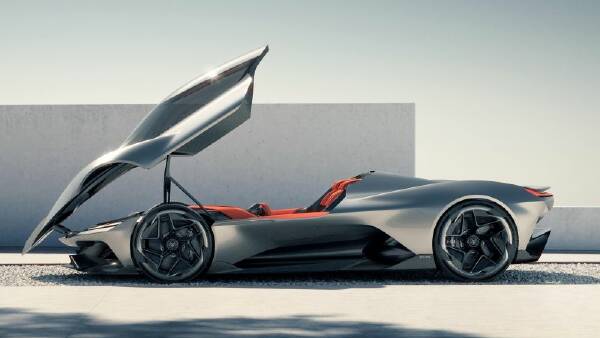
Chevrolet has introduced two distinct concepts for its iconic Corvette line, showcasing radically different approaches to the future of performance vehicles. One model features a powerful 1491kW twin-turbo 2.0-litre V8 engine, while the other embraces a cutting-edge quad-motor electric powertrain that promises even greater performance.
The first concept, equipped with the traditional V8 power, represents a nod to the Corvette’s storied heritage. This electrified version aims to deliver thrilling performance while incorporating modern technology. The V8 engine remains a symbol of American muscle, and Chevrolet is keen to preserve that legacy as it transitions towards more environmentally friendly options.
Conversely, the second concept showcases Chevrolet’s commitment to innovation with its all-electric configuration. The quad-motor setup allows for enhanced torque and acceleration, thereby reimagining how power can be distributed across all four wheels. This design not only maximizes performance but also aligns with the global shift towards sustainable energy solutions in the automotive industry.
Balancing Tradition and Innovation
Chevrolet’s dual approach reflects a broader trend within the automotive sector, where manufacturers are increasingly compelled to adapt to changing consumer preferences and regulatory pressures. The push for electric vehicles is not just about meeting emissions targets; it symbolizes a fundamental shift in how we perceive performance and luxury in cars.
The introduction of the V8-powered concept highlights Chevrolet’s recognition of its loyal customer base, who continue to cherish the raw power that comes from traditional combustion engines. Meanwhile, the all-electric model addresses the growing demand for sustainable options without compromising on the exhilarating performance that Corvette enthusiasts expect.
In recent years, several automakers have unveiled electric versions of their high-performance models, indicating a competitive landscape where innovation must be balanced with brand identity. Chevrolet aims to position the Corvette as a leader in this emerging market by offering both exhilarating speed and an environmentally conscious future.
Market Implications and Future Prospects
The automotive market is evolving rapidly, with electric vehicle sales projected to surge in the coming years. According to industry reports, electric vehicle sales could account for over 30% of total car sales by 2030. Chevrolet’s foray into electrification represents a critical step in maintaining its market relevance.
As the company invests in research and development for these concepts, it faces the challenge of delivering vehicles that meet consumer expectations for performance while adhering to increasingly strict environmental regulations. The future of the Corvette may hinge on how effectively Chevrolet can merge its rich history with the demands of modern technology.
By exploring both the V8 and electric powertrain, Chevrolet is not only diversifying its offerings but also reinforcing its commitment to innovation. The company’s strategy aims to capture a wider audience, appealing to both traditional car enthusiasts and new buyers seeking advanced technology.
As Chevrolet prepares to showcase these concepts at upcoming automotive exhibitions, the response from the public and industry experts will be crucial. The Corvette’s legacy is at stake, and how the brand navigates this transition will likely influence its trajectory in the highly competitive automotive landscape.
In summary, Chevrolet’s unveiling of both a V8-powered and an all-electric Corvette concept reflects a strategic vision for the future, balancing heritage with innovation. This dual approach not only highlights the brand’s commitment to performance but also its responsiveness to a rapidly changing market.






